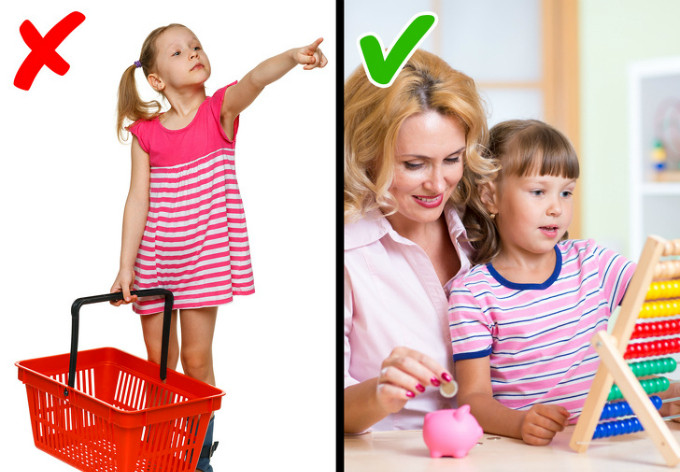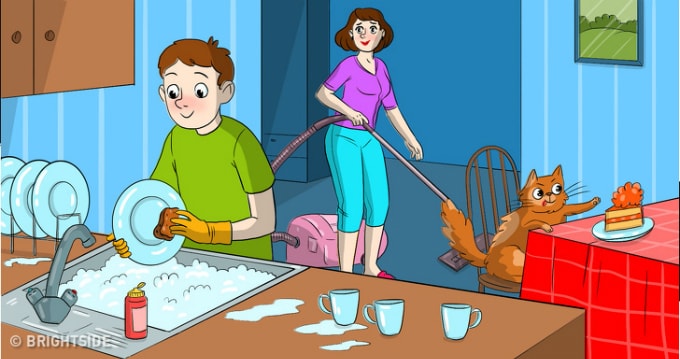10 things parents must teach their children to do by themselves before the age of 13
Knowing how to cook, manage money, basic first aid... are indispensable skills for children in their future lives.
The teenage years begin when a child turns 9 and last until 13. It is also a transitional period for parents from being a single parent to letting their child grow up independently. To help this process go smoothly, parents should work with their children to develop some essential life skills before the teenage years end - 13 years old.
1. Earn and manage money
|
You can teach your child some basic financial skills as soon as they learn to count. By age 13, they should be able to save money from their weekly allowance, be aware of basic household expenses, understand the difference between a debit card and a credit card, and be able to make decisions about spending and saving.
2. Do basic housework
|
According to psychologists, children can do many chores from an early age, such as cleaning up after dinner or picking up the laundry. By the age of 13, they can iron clothes, change bed sheets, wash the car, clean the bathroom and kitchen. Parents should be consistent and specific with their children's requests, and encourage them to do so.
3. Prepare meals
|
Cooking is an important skill your child will need as they grow up and there are many easy recipes for beginners such as making bread, scrambled eggs, noodles, soups, salads. By the age of 13, your child can plan family meals, follow some simple recipes and use kitchen utensils; don’t forget to teach your child the basics of hygiene and safety.
4. Grocery shopping
|
Taking your child grocery shopping with you helps them develop essential skills like meal planning, shopping lists, and budgeting. You should also teach them how to read nutrition labels and find good deals. And don’t forget to set limits on shopping with your child.
5. Personal hygiene
|
Many parents assume that their 10-11 year olds will naturally learn about personal hygiene. But in reality, there are many things parents should discuss with their children before it is too late, including the importance of bathing daily, using deodorant, changing clothes, shaving, brushing teeth, and understanding their own bodies. Be a good role model and always explain to your child why they need to do certain things.
6. Basic first aid
|
Basic first aid skills will help keep your child safe if they are injured and no one is around. In the UK, the Red Cross supports the inclusion of first aid education in school curricula. Meanwhile, some studies have shown that 4-5 year olds can already remember the correct emergency number, assess whether a person's breathing is abnormal... Some skills for older children include how to stop bleeding, treat burns and deal with bee stings.
7. Time management
|
Time management skills are essential: Your child should be able to plan, prioritize, and be productive. Try to provide your child with some tools that can help them manage their time better, such as setting a phone alarm, a calendar, etc. Deciding what to do and when becomes easier when you write it down. Or you can give your child a watch to help them manage their time. And most importantly, be a good example.
8. Social skills and manners
|
It is important to teach your children good manners as early as possible. For young children, start by example, encouraging them to share, be polite and respect their elders. Events at home are a good time to teach them how to be a good host and explain the rules of table manners. In modern society, online manners are just as important as in-person manners.
Building good manners will help your child in their everyday life as a teenager and achieve career success, and can help them build strong friendships.
9. Find your way
|
Your child will need to drive or travel alone one day, so it’s important that they understand how to use navigation tools and read maps. By age 13, they should be able to memorize directions, read map symbols, and navigate on their own. You can use online apps to help guide them.
10. Emotional regulation skills
|
Not only teenagers but also many adults lack the ability to accept and control emotions such as anger, stress and anxiety. Emotion regulation skills include the ability to identify emotions, understand the situation, manage emotions and seek help when needed. Realizing that feeling sad is not a sign of weakness and that emotions can be a support in dealing with situations will help your child later in life.













